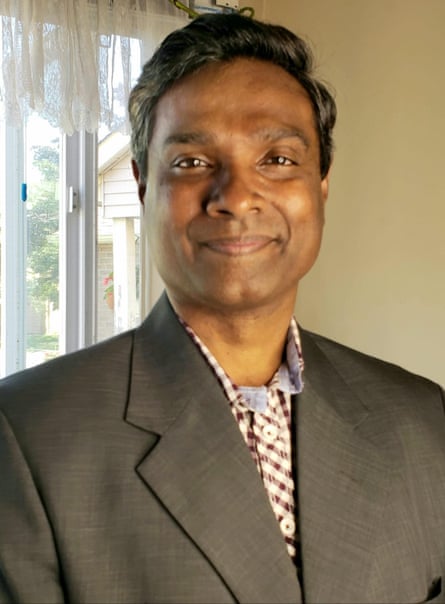When Vijay Puli arrived in Toronto with his wife and baby daughter, he thought they had finally left behind the discrimination, violence and social rejection they had faced in India.
Puli identifies as a Dalit, a member of a group who in India are considered to be at the very bottom rung, often deemed “untouchable”.
In India, the caste system has long dictated social, religious and economic hierarchies, despite officially being abolished in 1950.
And just a month after moving to Canada in 2006, Puli realized that caste prejudices persist there too.
At south Asian functions in Toronto, there were constant questions about which exact village his family came from. Jokes, slurs and stereotypes about Dalits were rampant, and he would often hear people blame Dalits for crimes in India, including rape and murder, he said.
“I came here to escape … but it happened here too. It’s very painful,” he said.
Even at his daughter’s Toronto school, there was caste-related bullying. One classmate told her they could not be friends due to her caste, said Puli, who is a social worker and the co-founder of the South Asian Dalit Adivasi Network, which campaigns for Dalit rights.
So Puli felt hopeful when the Toronto district school board (TDSB) – the largest in Canada – recently took a step toward banning caste-based discrimination.
Academics and activists hope the move will signal to lawmakers the need for further policy changes.
But they warned that criticism of the move showed the growing influence of Hindu nationalism among diaspora groups, under the looming influence of India’s prime minister, Narendra Modi.
On 8 March, the TDSB voted to ask the Ontario Human Rights Commission for a framework to address caste-based discrimination, in the first attempt to ban it in Canada. The move came soon after Seattle became the first US city to ban caste discrimination last month.

Acknowledging the specific discrimination which Dalit people encounter will hopefully encourage others to speak out about the hate they have faced, said Meera Estrada, a producer, writer and radio host in Toronto who identifies as Dalit Hindu.
“I never spoke about my caste openly, because I knew the people around me, in my social circles had these casteist views – even though many of them had never lived a day in India,” she said.
But the TDSB motion was not universally popular. The Canadian Organization for Hindu Heritage Education created a Change.org petition against the move, arguing that there was “little evidence” that caste discrimination exists, and claiming that the measures would increase prejudice against south Asians.
Chinnaiah Jangam, an associate professor at Carleton University in Ottawa who specializes in history and the Dalit people, said that groups from dominant castes are long accustomed to relative privileges. Proximity to British colonizers, speaking English, wealth and education have afforded many generations success, particularly in the west, he said.
And amid growing concerns over the rise of Hindu nationalism in India and elsewhere, governments around the world need to be more agile in understanding issues like discrimination and prejudice within diaspora communities, said Jangam.
Earlier this month, the National Council of Canadian Muslims and the World Sikh Organization (WSO) published a report on the influence in Canada of the Rashtriya Swayamsevak Sangh (RSS), a Hindu nationalist paramilitary organization which is closely linked to Modi’s Bharatiya Janata party (BJP).
“Through organizations that engage in humanitarian, community, education and political work, the RSS has been spreading its ideologies across the world, including into Canada,” the report’s authors wrote.
Jaskaran Sandhu, a board member of the WSO and co-author of the report, said that policymakers needed to be more aware of the growth of Hindu nationalism around the world.
“And when our governments engage with India … it has to be mindful of the realities occurring within and outside India, via the Hindu nationalist movement,” he said. “It’s not isolated in India, it’s being generated here as well.”

 1 year ago
53
1 year ago
53










 English (US)
English (US)